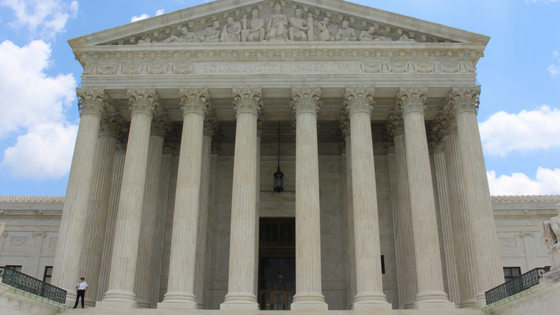In what will go down in history as the first time that Associate Justice Neil Gorsuch wrote an opinion, the Supreme Court today unanimously ruled that a company which purchases debts from another company and then attempts to collect on those debts is not defined as a “debt collector” under the Fair Debt Collection Practices Act.
The ruling in the case, Henson v. Santander, affirms a ruling from the Fourth Circuit Court of Appeals and a District Court that the defendant is not defined as a debt collector. In this case, Santander Consumer USA purchased a portfolio of defaulted loans from CitiFinancial and then attempted to collect on those loans.
Many in the industry were expecting the Court to rule this way on what was said to be a “narrow” case in attempting to define the role of a debt collector. The plaintiffs in this case attempted to argue the grammar and wording of the FDCPA should classify Santander as a debt collector. The FDCPA is written that a debt collector is defined as “any person who uses any instrumentality of interstate commerce or the mails in any business the principal purpose of which is the collection of any debts, or who regularly collects or attempts to collect, directly or indirectly, debts owed or due or asserted to be owed or due another.” In this case, the plaintiffs attempted to argue that because the FDCPA uses the word “owed,” what the authors of the law meant was
the statute’s definition of debt collector captures anyone who regularly seeks to collect debts previously “owed . . . another.” So it is that, on petitioners’ account, the statute excludes from its compass loan originators (for they never seek to collect debts previously owed someone else) but embraces many debt purchasers like Santander (for in collecting pur- chased debts they necessarily seek to collect debts previ- ously owed another). If Congress wanted to exempt all present debt owners from its debt collector definition, petitioners submit, it would have used the present participle “owing.” That would have better sufficed to do the job—to make clear that you must collect debts currently “owing . . . another” before implicating the Act.
Justice Gorsuch was not buying it.
But this much doesn’t follow even as a matter of good grammar, let alone ordinary meaning. Past participles like “owed” are routinely used as adjectives to describe the present state of a thing—so, for example, burnt toast is inedible, a fallen branch blocks the path, and (equally) a debt owed to a current owner may be collected by him or her. … Just imagine if you told a friend that you were seeking to “collect a debt owed to Steve.” Doesn’t it seem likely your friend would understand you as speaking about a debt currently owed to Steve, not a debt Steve used to own and that’s now actually yours?









